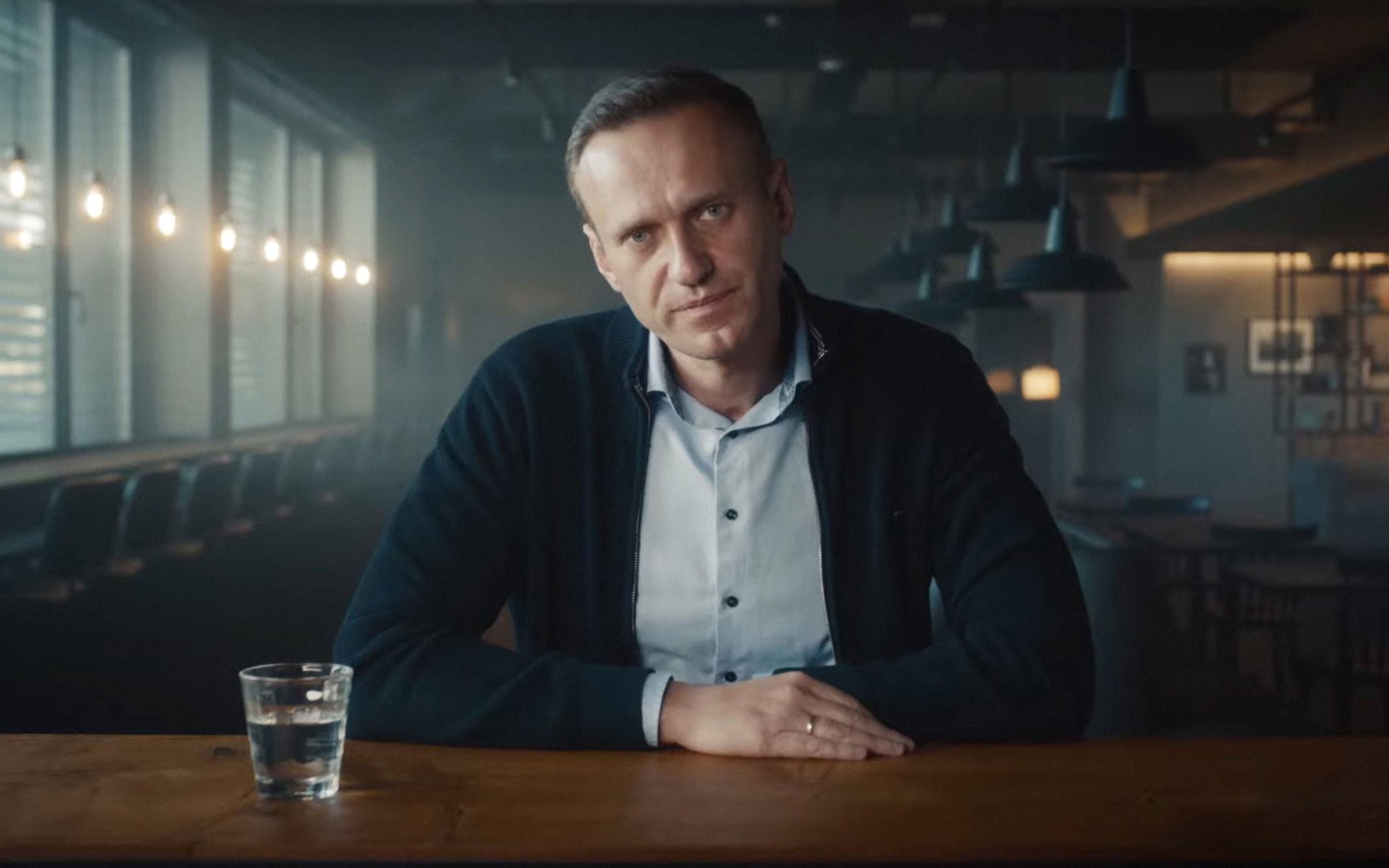
When Alexei Navalny’s namesake documentary won an Oscar on Sunday, its victory was hailed by many in the U.S. as a rebuke of the Russian invasion of Ukraine. Indeed, speaking through director Daniel Roher, the Russian opposition leader cited the “unjust war of aggression in Ukraine” as the reason he is currently in solitary confinement in a Russian prison. But there was at least one contingent who weren’t ready to praise the film: some Ukrainian journalists, scholars and politicians.
On Twitter, many users criticized the Academy for feting a Russian family in Los Angeles while so many Ukrainians remain imperiled by the invasion.
“The first photo is the fight for freedom. The second photo is the fight for power. Do not confuse them,” wrote Taras Mishchenko, editor-in-chief of the publication Mezha.Media, juxtaposing an image of Navalny’s family in black tie at the Oscars with an image of Ukrainian soldiers on a battlefield.
Mikhail Podolyak, a Ukrainian politician, also criticized the Academy for failing to include Ukrainian president Volodymyr Zelensky during the broadcast. For the second year in a row, the Academy has reportedly rejected a request from Zelensky to speak on the grounds that the event isn’t political.
More from TIME
But Christo Grozev, a journalist with the investigative group Bellingcat who was featured in the documentary, pushed back on Twitter against the criticism:
He added that he was “happy” that Roher “used the short time he had on the world’s biggest stage to explicitly condemn Putin’s barbaric attack on Ukraine.”
Alexei Navalny is widely esteemed for his willingness to risk his life to push for democracy in Russia, but many Ukrainians continue to be wary of the Russian opposition leader. The fundamental problem, says Maria Popova, an associate professor at McGill University who studies political development in Ukraine, is that Navalny “has denounced the war, but not Russian imperialism.”
In Popova’s view, the issues Navalny has focused on, including fighting autocracy and corruption in Russia, are not immediately relevant to Ukrainians; meanwhile, Navalny has been slow to offer support for Ukrainian territorial integrity and has a “long history of nationalism and xenophobia.” Navalny has also not endorsed Ukraine’s NATO membership, Popova noted. “That, to Ukrainians, means that they’re not fully their allies,” she says. “They’re kind of the enemy of the enemy, but not an ally.”
Another sticking point is Navalny’s past stance on the territory of Crimea, which Russia invaded and seized in 2014. In a 2014 interview, for instance, Navalny said that Crimea would “remain part of Russia,” while in a blog post that same year, he criticized the 1954 transfer of Crimea to Ukraine for taking place in the first place. As recently as January, Maria Pevchikh, a Russian journalist and head of the investigative arm of Navalny’s Anti-Corruption Foundation (FBK), refused to comment on Crimea.
In February, Navalny’s team seemed to strengthen their support of Ukraine in a blog post on the war, which commented that Ukraine’s territory was established in 1991—long after the incorporation of Crimea. However, this shift does not seem to have persuaded some Ukrainians. Following the Navalny film’s victory, Andriy Sadovyi, the Mayor of Lviv, referenced a comment Navalny made in 2014 rejecting the suggestion that Crimea should be returned to Ukraine, in which Navalny said, “Is Crimea a sandwich or something that you can take and give back?”
Writing on Twitter, Sadovyi said: “Navalny is a sandwich packed in a lunchbox and carried around the world as an example of the fact that there is still opposition in Russia. They discuss its recipe, stale bread, spoiled cheese and the specific smell of Russian propaganda, which now smells of the Oscar statuette.”
According to Popova, Navalny’s recent statements are unlikely to be enough for many Ukrainians, especially amid a war with his countrymen. “It’s an issue of trust,” says Popova. “His views might well have evolved, but, unfortunately, Ukrainians—or anybody, really—cannot know whether this evolution is sincere or strategic, as he currently needs to say the right things in order to have the support of the West to combat Putin’s regime.”
Others also noted Navalny’s history of racist and xenophobic comments, including using an ethnic slur against Ukrainians and derogatory statements about many peoples, including Georgians, following the 2008 Russo-Georgian War. Journalist Ostap Yarysh noted that at the time, Nalvalny wrote a blog post calling Georgians “rodents;” saying that he’d like to send a missile at Georgian military leaders; and comparing Mikheil Saakashvili, the Georgian prime minister at the time, to Hitler.
“Being anti-Putin doesn’t negate Navalny’s imperialist and chauvinist views” tweeted Yarysh. “Is Navalny anti-Putin? Yes. Was he wrongfully imprisoned by [the] Kremlin for this? Absolutely. Is he anti-war? He says so.
“But does he reject the colonial approach and the idea of Russian superiority/dominance over other nations? Definitely not. And this is something to keep in mind.”
Correction, March 14
The original version of this story mischaracterized a portion of the interview to which Andriy Sadovyi referred after the Navalny film’s Oscar win. The interview was in 2014, not 2015, and Navalny said in that conversation that Crimea would remain part of Russia, not that it should remain part of Russia.
More Must-Reads from TIME
- L.A. Fires Show Reality of 1.5°C of Warming
- Home Losses From L.A. Fires Hasten ‘An Uninsurable Future’
- The Women Refusing to Participate in Trump’s Economy
- Bad Bunny On Heartbreak and New Album
- How to Dress Warmly for Cold Weather
- We’re Lucky to Have Been Alive in the Age of David Lynch
- The Motivational Trick That Makes You Exercise Harder
- Column: No One Won The War in Gaza
Contact us at letters@time.com



